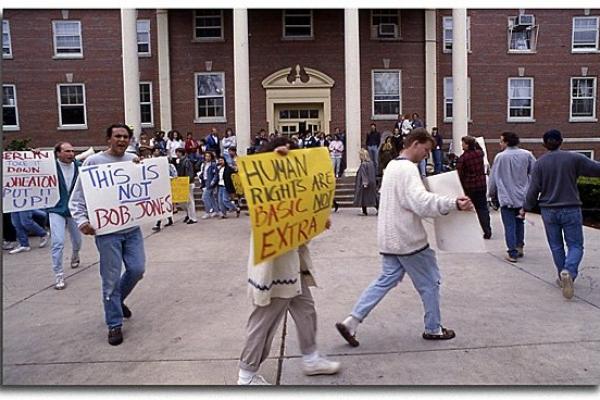Jan 7, 2016
What do we lose when we trade our humanity for social stereotypes rationalized by religious dogma?
That question is at the heart of an ongoing discussion my son, a junior at Kenyon College, and I are having around the recent suspension of a tenured Wheaton College professor, Larycia Hawkins, for wearing a hijab during Advent and stating publicly (via her personal Facebook page) that Muslims and Christians worship the same god.
Read the Full Article

Already a subscriber? Login
